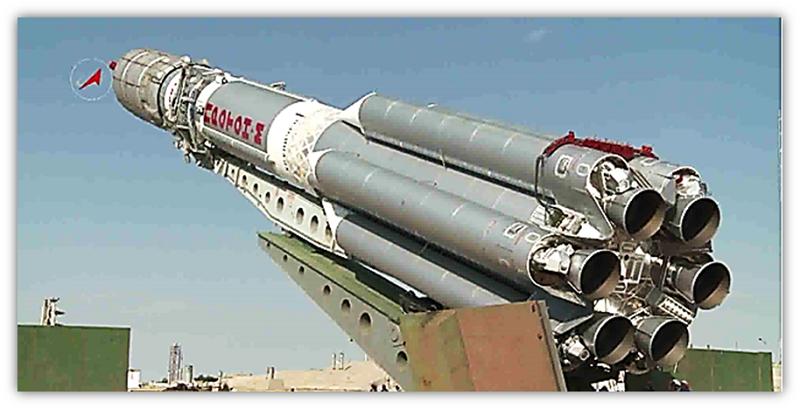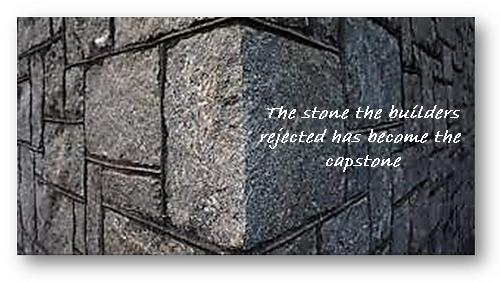Does Peter Draw a Line?
Does Peter Draw a Line?
After the Lord Jesus had spoken to them, he was taken up into heaven and he sat at the right hand of God. Then the disciples went out and preached everywhere, and the Lord worked with them and confirmed his word by the signs that accompanied it.
Mark 16:19-20

It takes a lot of power to launch a satellite. What a spectacular experience it would be if you were there at its launch. The people in the control centre are under tremendous pressure because irrevocable decisions have to be made. Mistakes made here could cause the satellite and carrier rocket to burn up in the atmosphere. If all goes according to plan then the people in the control centre can relax somewhat: the rocket and its satellite are on course.
The ‘start’ of the church has often been illustrated with this example. After Christ’s ascension to heaven, His Spirit was poured out into the world. Spectacular phenomena took place: massive conversions, healing of the sick, people freed from demons that were tormenting them, people raised from the dead. All such things were necessary because the church was being ‘launched.’ Signs and miracles were the launching pads of the church. But once the church was ‘on course’, everything became relatively normal – normal Christian life.
You could say that a dividing line was drawn after the beginning period of the Christian church. Before that line, signs and miracles were common. After that line, a new period started in which miracles ceased or became the exception. This view of ‘cessationism’ is referred to as “the line-theology” here in our country.
Does Peter indeed draw a line? That is the subject of this article. I will discuss three Bible passages that are linked by Peter: Mark 16, Acts 5 and 1 Peter 2.
The Promise⤒🔗
Later Jesus appeared to the Eleven as they were eating; he rebuked them for their lack of faith and their stubborn refusal to believe those who had seen him after he had risen.
He said to them, 'Go into all the world and preach the good news to all creation. Whoever believes and is baptized will be saved, but whoever does not believe will be condemned. And these signs will accompany those who believe: In my name they will drive out demons; they will speak in new tongues; they will pick up snakes with their hands; and when they drink deadly poison, it will not hurt them at all; they will place their hands on sick people, and they will get well.'Mark 16:14-20
It is commonly-accepted church history that there is a connection between Peter and the gospel of Mark. Peter gave many sermons because he saw it as his duty to speak of all that Jesus had said and done. Had he himself not been an eyewitness? More than once Jesus had taken him, along with others, as a witness to experience it all. He had to pass it on, and that is what he did. In his sermons, he brought to remembrance all that Jesus had said and done. A small example of Peter’s approach can be found in Acts 10:34-43. Peter went along to Caesarea to the house of the devout centurion Cornelius. At Cornelius’ invitation, he then spoke of all that the Lord had commanded him to speak of. Starting with the baptism preached by John, he went on to speak about Jesus of Nazareth, concluding with forgiveness of sins for all who believe in Jesus. Peter must often have preached in this manner. All the information passed on in his sermons has been reproduced in an orderly fashion by Mark in his gospel. Therefore Mark 16 can also be read as information from Peter. Let us read it so.

Peter well remembers Jesus’ last mission for them before He ascended to heaven: tell all people the good news of salvation. Whoever does not believe will not be saved, will not receive God’s love. But all who believe will be saved. That is surely good news! Go out into the world with that message.
Peter also remembers the promise Jesus made before He went to heaven. Jesus had said that His power would accompany them. Wherever people came to faith, His conquering power would be evident. You would be able to see it in all sorts of ways. Evil spirits lose their influence: we have power over them. Language barriers disappear: we understand each other despite different tongues. Nature loses its threat: we need no longer fear snakes. Enemies are powerless: whoever tries to poison us is unsuccessful. Life is being healed, made whole again: there is no longer illness and suffering: we all get better.
The Outcome←⤒🔗
Peter also very well remembers the outcome: There were eleven of them and they did not have the courage to do anything. But Jesus had come to find them. He had spoken a hearty word, and that had been awesome. Jesus had sent various people to them to report that He had risen from the dead, but they had not believed the words of the messengers. Jesus therefore accused them of lacking faith and being stubborn. Only when he appeared to them in person did they believe that He had been raised from the dead. He had rebuked them for not believing it sooner. He then forgave them and gave them new courage. Only then did they become obedient to the mission Jesus had given them. They went on their way to spread the news of Jesus everywhere. They did not stop to think: “That task is too heavy and we will never manage it”. They just started and they noticed that the Lord continued His work. When they made known the good news about Jesus, the Lord helped them. He gave them all the signs he had promised. And that so strengthened them in the beginning! He ensured that people across the whole world believed and were baptized.
Jesus never deserted His apostles. His power accompanied them. Peter testifies to this at the end of Mark 16. We read it and are encouraged. We are sometimes threatened by demonic powers: it is frightening. We do not always understand each other: it makes us angry. Nature takes casualties: it grieves us. Enemies develop such strength that the church seems to disappear: we feel defeated. People are ill and stay ill, they die: we feel amputated. We seek our comfort with the Lord. He is so strong and He is busy making everything new. That is what He has promised and that is what He will do.
The Power←⤒🔗
The apostles performed many miraculous signs and wonders among the people. And all the believers used to meet together in Solomon’s Colonnade. No one else dared join them, even though they were highly regarded by the people. Nevertheless, more and more men and women believed in the Lord and were added to their number. As a result, people brought the sick into the streets and laid them on beds and mats so that at least Peter’s shadow might fall on some of them as he passed by. Crowds gathered also from the towns around Jerusalem, bringing their sick and those tormented by evil spirits, and all of them were healed.Acts 5:12-16
In Jerusalem you can see how Jesus is working. The congregation in Jerusalem experiences an enormous growth in a short time. It grows from 120 members to 300 and even up to 5000 members. The growth just goes on and on. This turbulent growth is also a result of the signs and miracles performed by the apostles. In this you see the Lord’s power. It is a very special atmosphere, truly having something of a new start. The liberating work of the Lord becomes visible.

In Acts 5 it is described very simply: they “performed many miraculous signs and wonders among the people”. Yet many personal stories are hidden behind this short description. It is all about people who were weighed down by terrible things. It is about people who had a difficult life. People who had lost all courage. All those people are freed and healed. Life has become light for them. Life is smiling at them, thanks to the signs and miracles of the apostles.
Peter’s position in all this is very special. The sick are laid on the street and when Peter walks past and his shadow falls on them they are healed. How fantastic that was! Peter probably just walked around all day in the sun, casting his shadow on all the sick and all the people who were tormented by evil spirits. The power of the Lord was revealed in all these signs and miracles.
That power is also apparent in the unity of the believers. We can hardly imagine what life in Jerusalem was like in the times after Jesus’ ascension. The temple is still in business as normal. The believers come together, firstly in the temple itself, and later in Solomon’s Colonnade near the temple. They display such remarkable unity of purpose that others notice it and enjoy seeing it. I can only guess in what way this unity of purpose showed itself. Possibly because of the harmonious association with each other, cherishing the memories of Jesus, singing songs of praise for their Lord, comforting each other, supporting each other. In any case, it is noticed by others and they are enthusiastic. It is the power of the Lord!
Not All is Perfect←⤒🔗
Not that all is perfect in Jerusalem. The signs and miracles may be wonderful, but they also bring about heavy resistance from the high priest and his associates. Who can understand that? Just imagine that Peter is walking around in our town or village. He walks right past you and suddenly you are healed of the pain from which you have been suffering for years. Would you not give yourself to the Lord right then and there?! But no, signs and miracles alone do not bring people to faith. The signs and miracles accompany the faith. The Lord strengthens His Word by these signs. He shows what He has in mind and what the outcome will be. In Jerusalem it is met with resistance.
Others do not resist, but nevertheless do not consent to be baptized. They have a different problem, namely that they are scared to join the believers. They appreciate what those people are doing, but for them it is too big a step to join in. They do not give themselves to Jesus Christ of Nazareth. Nevertheless, there are more and more people in Jerusalem who come to faith in the Lord. Thanks to the power of the Lord the growth continues undiminished...
The Building←⤒🔗
Therefore, rid yourselves of all malice and all deceit, hypocrisy, envy, and slander of every kind. Like newborn babies, crave pure spiritual milk, so that by it you may grow up in your salvation, now that you have tasted that the Lord is good. As you come to him, the living Stone – rejected by men but chosen by God and precious to him – you also, like living stones, are being built into a spiritual house to be a holy priesthood, offering spiritual sacrifices acceptable to God through Jesus Christ. For in Scripture it says:
“See, I lay a stone in Zion, a chosen and precious cornerstone, and the one who trusts in him will never be put to shame.” Now to you who believe, this stone is precious. But to those who do not believe, “The stone the builders rejected has become the capstone,” and, “A stone that causes men to stumble and a rock that makes them fall.” They stumble because they disobey the message which is also what they were destined for.
But you are a chosen people, a royal priesthood, a holy nation, a people belonging to God, that you may declare the praises of him who called you out of darkness into his wonderful light. Once you were not a people, but now you are the people of God; once you had not received mercy, but now you have received mercy.1 Peter 2:1-10

Peter must have had some very special experiences. Firstly, he witnessed the promise of his Lord. He had heard how Jesus said: Where people come to faith, my conquering power will be seen! Then he had seen the power of his Lord at work: he had seen that even his own shadow brought healing! That must have had a great effect on him! Yet in his letters, Peter does not mention it. He writes nothing about the wonderful happenings in Jerusalem. You notice no form of pride about the signs and miracles (“listen to what happened to me”). You do not even hear him praise God because of the signs and miracles (“listen to all that God did through me”). Peter is silent about it. It was valuable, but apparently it was not something to bring up again in his letters.
In his letters, Peter does write about the good news that is proclaimed. Jesus is risen from the dead, God gave us new life through his power. That new life is accompanied by trials: see 1 Peter 1:6. We must not be surprised that we suffer because of Christ, see 1 Peter 2:21, although this is temporary, because God has called us to take part in His eternal glory, see 1 Peter 5:10.
In his first letter, Peter calls on us to do several things. I now restrict myself to two things that we read in 1 Peter 2.
1. Be like a newborn baby←↰⤒🔗
A small child drinks from his mother. He drinks as if his life depended on it – and it does. Peter compares us to such newborn babies (vv. 2, 3). Drink in the Word of God, for your life depends on it. Drink! And then you will taste that the Lord is good. If you are in danger of forgetting what it tasted like, drink again. If you no longer feel anything, keep drinking. Drink the pure milk of the Word of God. Only then will you taste the goodness of the Lord.
2. Come to Christ←↰⤒🔗
In vv. 4, 5 Peter uses the illustration of a house. Christ is the stone – a living stone – and we must adapt ourselves to Christ. We too are living stones. We cannot be neatly stacked, for we are all very differently shaped. You could say that we are hand-worked stones, sometimes with sharp corners and with some irregularities here and there. The sharp corners must go, the irregularities have to be evened out and made to fit. With ordinary stones that is no problem. The mason simply strikes off a piece with his trowel and continues building his wall, but with us living stones it can be a painful process. Yet it is very necessary because only in this way can we make good contact with the cornerstone; and in this way the wall has good cohesion. The wall becomes strong, the house beautiful. Whoever builds on Christ will not be deceived.
If we do this, we will notice how careful God is in His work. It all starts with God who has chosen us, continues with God who bought us, and results in God making us suitable.
Conclusion←⤒🔗
Peter had personally experienced how the Lord Jesus strengthened the Word preached by himself and the other apostles. That is confirmed in general terms in Mark 16 and made more explicit in Acts 5. Jesus is clearly victorious.
Yet Peter also personally endured suffering. He testifies in his letters that suffering is a part of the Christian life. Still he is able to write in 1 Peter 2: you have tasted that the Lord is good.
Attentively reading the letters of Peter with Mark 16 and Acts 5 in mind can be very worthwhile. In Mark 16, after the promise (vv. 17-18) we are told directly about the outcome (vv. 19-20). In Mark 16, it is indeed about the times at the beginning, about that difficult moment when the apostles, despite there being only eleven of them, were told to go out into the world and bring the good news to all creatures. This interpretation is confirmed by reading Peter’s letters.

In Acts 5, it is about a special moment in the life of the Jerusalem congregation. It is the special time of the launching of the Christian church. It is valuable to read about this, but it not meant for us to copy. We do not live in Jerusalem, and we are not in the first phase of the Christian community. This is also confirmed by reading Peter’s letters.
The Letters of Peter are exclusively about normal Christian life, in which God’s strength and mercy are abundantly revealed. Ordinary Christian life becomes extraordinary.
So there is a line drawn across the first period of the Christian church. That is not a bold line, where all sorts of spectacular phenomena take place before the line, and exclusively everyday phenomena occur after the line. It is more like a dotted line.
Before the dotted line, the Lord empowered the spreading of the gospel by using spectacular ways supplementing everyday ways. After the dotted line, He continues mostly in everyday ways. But in our times too, He has the power and the liberty to call on spectacular ways. Who are we to deny it?

Add new comment